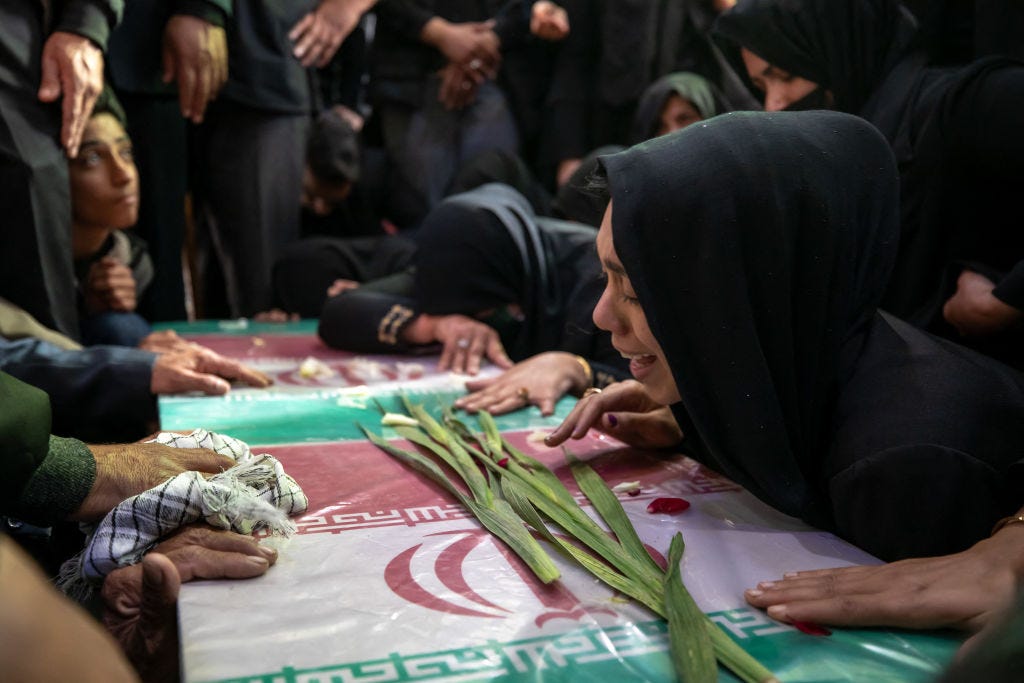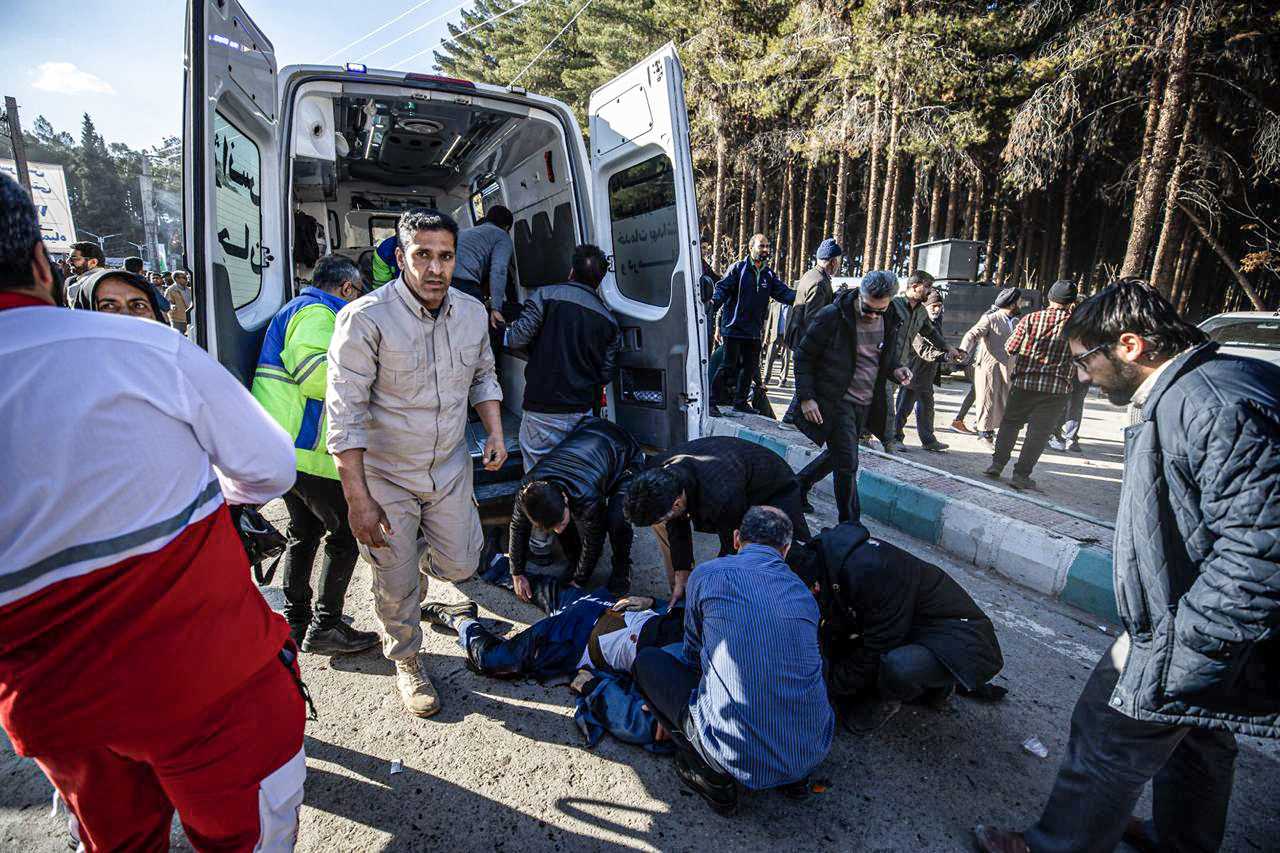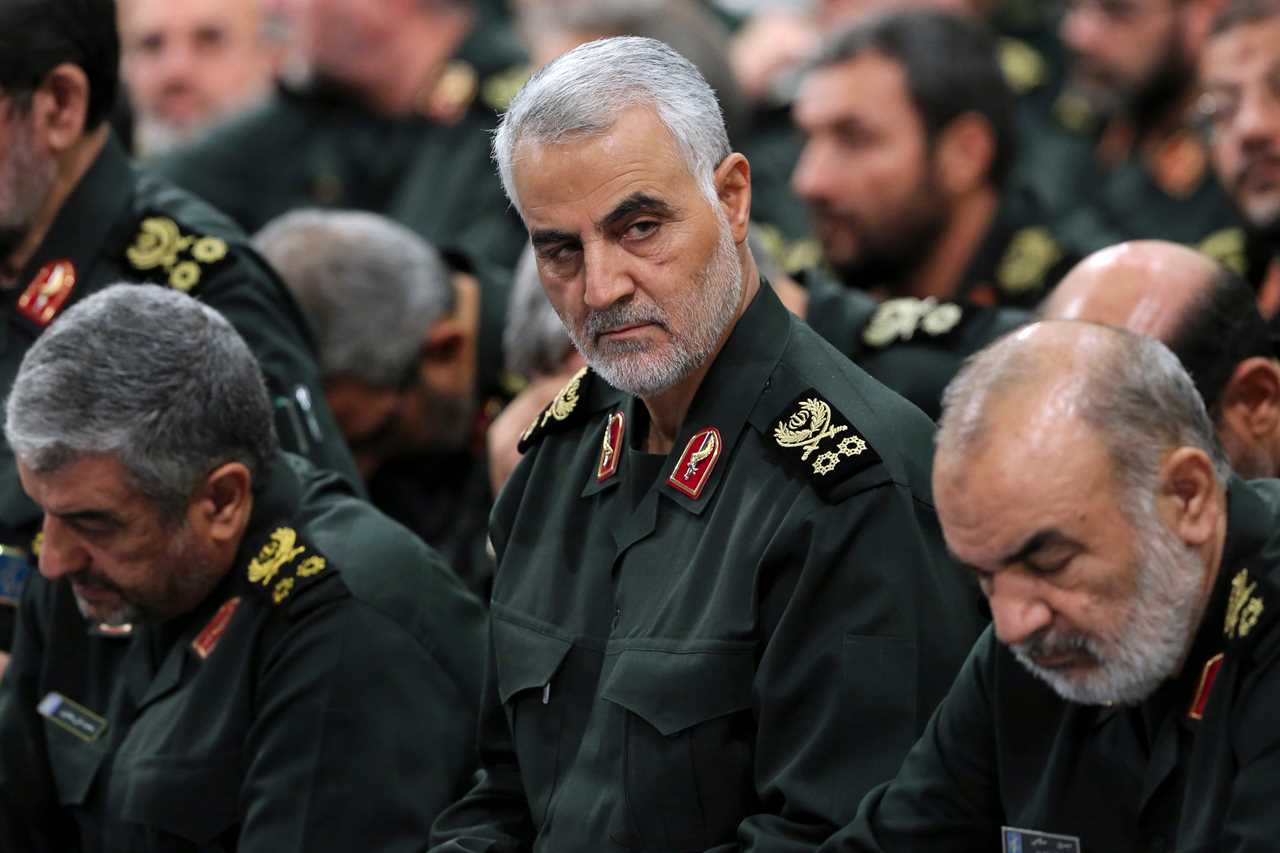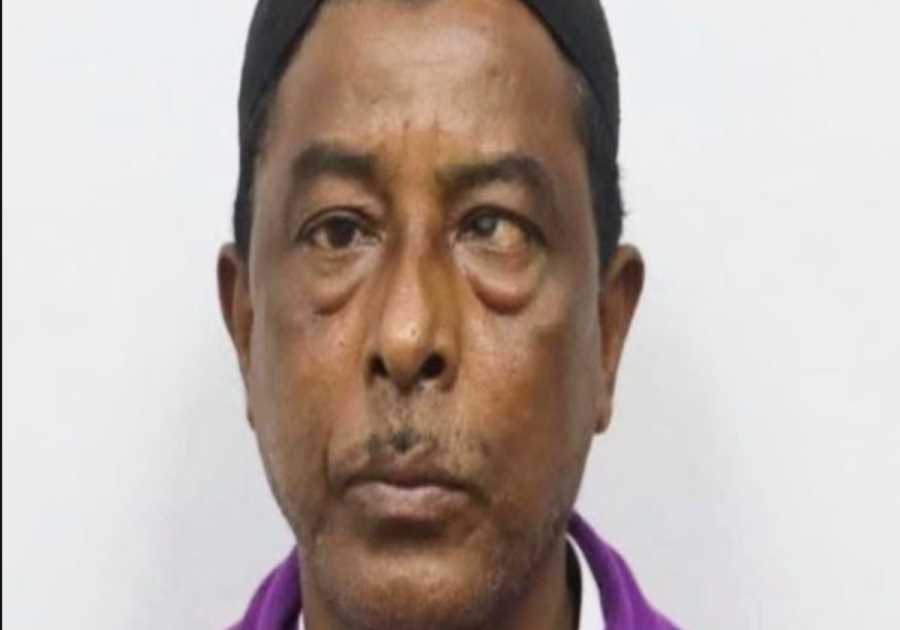
AMIR MORADI/Middle East Images/AFP via Getty Images
- Scores were killed in blasts last week, at a memorial event for an Iranian military chief.
- ISIS-K claimed responsibility for the attack.
- Qassem Soleimani's commemoration was targeted because he led campaigns against Sunni militants.
Last week in Kerman, a city in southeastern Iran, large crowds gathered to mark the fourth anniversary of the US killing of the top Revolutionary Guards (IRGC) commander, Qassem Soleimani.
By the day's end of the day, scores of supporters of the rulers of Iran were dead, and hundreds were injured in a twin suicide bombing.
The attack that left nearly 100 dead, Reuters reported, was coordinated to inflict maximum devastation. The first bomber initiated the explosion at the Kerman ceremony, followed by another 20 minutes later as emergency responders and bystanders rushed to aid the victims, the Iranian authorities said.
Barbara Slavin, Distinguished Fellow at The Stimson Center and former director of the Future of Iran Initiative at the Atlantic Council's South Asia Center, told Business Insider that Soleimani was a divisive figure.
He was considered a hero, she said, by many in Iran for driving ISIS out of Iraq and helping to defeat them in Syria.
"But of course, this has made enemies for him within ISIS," she said.
Indeed, ISIS-K, a branch of the terror network based in Afghanistan and central Asia, quickly claimed responsibility for the fatal blasts. The militant Sunni Muslim group said on Telegram that two of its members had detonated explosive belts as crowds gathered at the Kerman cemetery.

Stringer/Anadolu via Getty Images
It was the latest in a string of attacks by the ISIS affiliate that has been targeting Iran for five years. The first was a two-pronged operation against the Iranian parliament and Ayatollah Khomeini's mausoleum in the capital, Tehran, in 2017, that left 16 people dead.
Iranian authorities say they have identified the alleged ringleader responsible for orchestrating the bombings. The Ministry of Intelligence said that the main suspect, operating under the alias Abdollah Tajiki, is a Tajik national who illegally entered Iran last month.
Thirty-five suspects across various provinces have also been apprehended in connection with the bombings, it said.
The Iranian intelligence ministry sought to blame its old enemy Israel for the atrocity and said one of the bombers had Israeli citizenship, the Times of Israel reported.
But Slavin said the slaughter at Kerman did not bear the hallmarks of an Israeli covert operation.
"Israel has done a lot against Iran," said Slavin. "It's assassinated nuclear scientists, it's carried out cyber sabotage of nuclear facilities, it's stolen documents from Iran, highly sensitive nuclear archives, and so on. But it it has not at least, in my experience, taken part in these kinds of terrorist attacks."
US intelligence corroborated ISIS' role. White House spokesman John Kirby said the US was in "no position to doubt Islamic State's claim" that it was responsible, per Reuters.
ISIS plotted a revenge attack because they hated Iran's top commander

(Office of the Iranian Supreme Leader via AP)
The ISIS enmity toward Iran speaks to the age-old conflict between the two major branches of Islam, the Sunni and Shia Muslims. The Islamic schism stems from a theological dispute over the success of the Prophet Mohammed in the seventh century. The two branches also have profound differences over elements of Muslim worship and practice.
While Shia Iran is self-styled as the "Islamic Republic," it is detested by Sunni extremists as a form of apostasy.
This schism is also present in Yemen, where the Iran-backed Shia Houthis rebels have fought a bitter decadelong civil war against the Sunni-dominated government. This week, the US and UK launched military strikes against the Houthi rebels that have been attacking Red Sea shipping after repeated warnings.
Soleimani, the commander of the Quds Force, which specialized in military operations beyond Iran's borders, personified the hostility of the extremist Sunni militants.
"Soleimani got his start fighting against extremists in Afghanistan. He helped the United States in the immediate aftermath of 9/11 to defeat the Taliban, which had given sanctuary to al Qaeda, the perpetrators of 9/11," Slavin said.
As a result, as well as religious and ideological reasons, Salvin believes that ISIS was motivated to carry out the attacks out of a desire for revenge against Soleimani "for all his efforts to suppress Sunni militants for his activities in Afghanistan, going back to the late 1990s, all the way up through his campaign against ISIS in Iraq and Syria."
Soleimani was killed by an American drone strike in 2020. The strike was authorized by Donald Trump.
The Stimson Center highlighted that the extent of the attacks highlighted an intelligence failure on Iran's part.
Slavin said it's "very easy" to penetrate Afghanistan's "porous" border. Tehran has vowed revenge for the bloody Kerman attack.
Experts in ISIS-K and Iran believe the Kerman attack highlights ISIS-K's recruitment strategies and its "growing ability to strike declared enemies and undermine regional stability."
They will continue to attempt attacks against Iran "no matter what," Washington Institute for Near East Policy expert, Aaron Zelin, told the VoA.
Read More
By: [email protected] (Rebecca Rommen)
Title: Why ISIS has unleashed its suicide bombers against Iran
Sourced From: www.businessinsider.com/twin-blasts-iranian-memorial-for-soleimani-killed-over-90-people
Published Date: Sun, 14 Jan 2024 13:05:39 +0000
.png)





